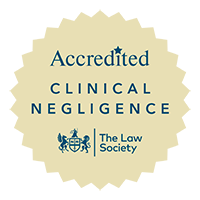Top ranked cerebral palsy claims lawyers

Boyes Turner’s birth injury lawyers have obtained a substantial settlement for a boy whose brain was damaged from an intra-ventricular brain haemorrhage (IVH) in the hours leading up to his birth.
The agreed settlement figure took into account the uncertainty surrounding the cause of the claimant’s brain injury, and the significant risk of the trial judge finding that the defendant’s negligence did not cause the claimant’s injury. The settlement, which will provide our client and his family with the certainty of essential support, was approved by the court.
Premature birth at 30 weeks of pregnancy
Our client’s mother had high blood pressure but her pregnancy was normal until 30 weeks when she was taken by ambulance to hospital after fainting from severe abdominal pain. She was admitted to hospital where she was found to have signs of clinical shock including very low blood pressure. The unborn baby’s (fetal) heart-rate was monitored and was found to be normal. The mother was seen by a doctor, who reassured her and the fetal heart monitor was stopped.
The mother’s blood pressure and haemoglobin remained very low, indicating a possible abruption (where the placenta detaches from the uterine wall) or significant bleed. The doctor was informed but failed to review her, even when her pain returned later. There was a four-hour delay from when the monitor was switched off until the doctor scanned her, listened to the fetal heart, and decided to deliver the baby by caesarean section.
The baby was born with no detectable heartbeat, cyanosed (blue) from lack of oxygen and making no effort to breathe. He was intubated and given cardiac massage and was transferred to SCBU. Blood tests showed that he was acidotic – a sign that he had been deprived of oxygen before birth.
Complex causation - when did the brain damage occur?
It was agreed by the experts that, given the mother’s condition, the doctor should have reviewed her sooner. However, the court would have to decide how soon the decision to deliver the very premature baby should have been taken and whether an earlier delivery would have avoided his brain damage.
The claimant would only be compensated for his injury if the trial judge found the injury was caused or made worse by hypoxia during a period of negligent delay in hospital.
The difficulty in this case was that the baby’s brain scans did not show the type of brain damage that would normally be expected from hypoxia in final hours leading up to birth. Instead, the scans revealed that an intra-ventricular haemorrhage (IVH) had caused the baby’s injury.
The defendant’s experts believed that the events before admission to hospital caused the damage leading to IVH. Our experts accepted that this was possible but thought that, in this case, it was more likely that a period of hypoxia (during the delay in hospital) had damaged the fragile blood vessels which then burst resulting in IVH. However, we had to accept that this would be more difficult to prove without clear evidence of hypoxic damage on the scan.
If the claimant could not prove that the IVH and brain injury were caused by hypoxia during the period of negligent delay, he would lose his claim and receive no compensation. The risk to the claimant was high because the law requires the claimant to prove his case before he can be compensated. To protect our injured client from that risk and safeguard his ability to pay for essential support in future, we accepted the defendant’s discounted compensation offer to settle his claim.
Compensation provides certainty and support for our client’s future
Our client’s brain injury left him with intellectual impairment and some learning difficulties. He would have suffered reduced IQ from his very premature delivery in any event but his IVH has reduced his IQ further. He does not have cerebral palsy or significant physical impairment, but he has difficulties with coordination. He has a normal life expectation. He will be able to live independently in normal accommodation and work in paid employment.
His settlement, which is protected by the Court of Protection, gives his parents certainty and peace of mind that comes from knowing that money will always be available to provide him with case management and ongoing support.
If you are caring for someone with brain injury or neurological disability caused by medical negligence, and would like to find out more about making a claim, contact us by email at cerebralpalsy@boyesturner.com.
They have a great deal of knowledge and expertise, and client care seems to be their top priority.
Chambers Guide to the Legal Profession
Contact our expert Cerebral Palsy solicitors today for support with your claim




